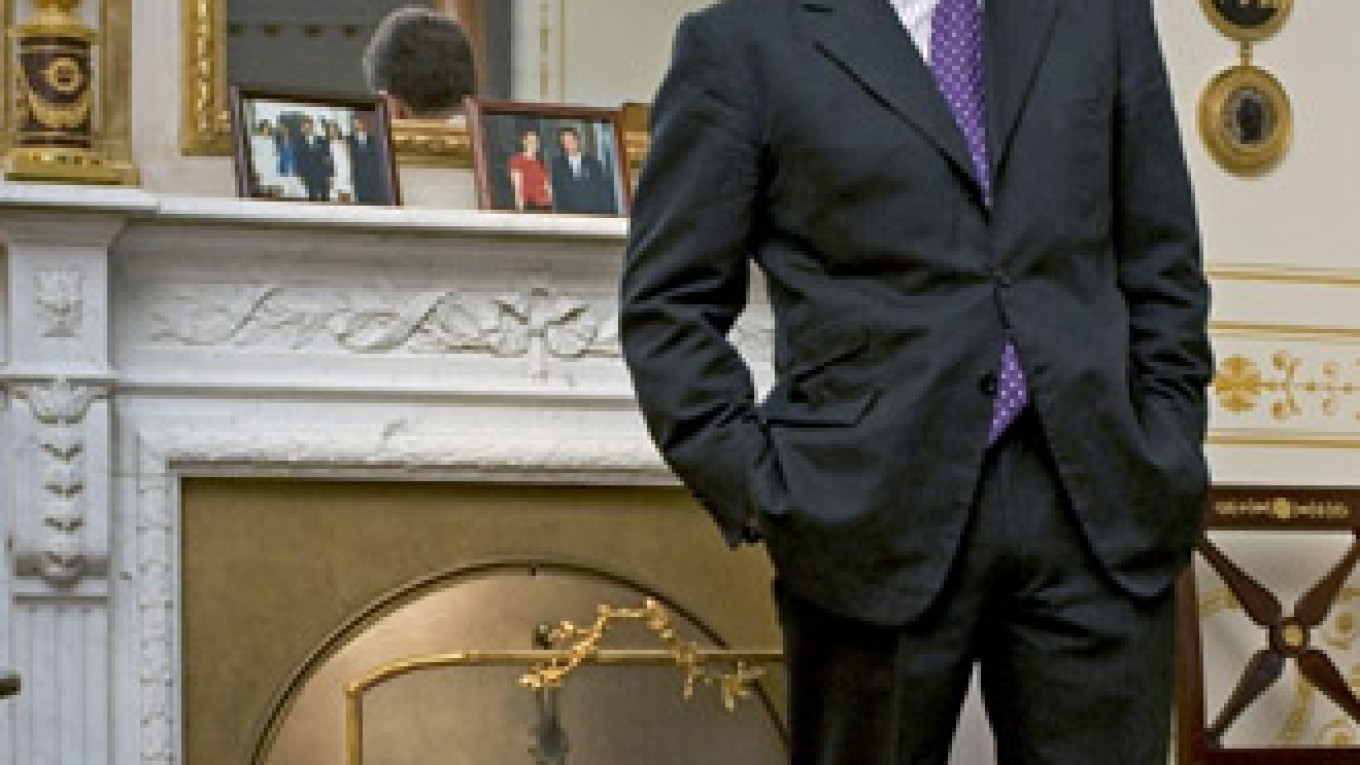A Tel Aviv court charged Russian-Israeli tycoon Arkady Gaidamak with money laundering and fraud Thursday, accusing him of laundering $173 million with help from senior executives at Bank Hapoalim, Israel’s second-largest bank.
Gaidamak and bank officials are accused of “utilizing the Israeli banking system for the purpose of fraud and money laundering,” the court said in a statement.
The bank’s senior executives are charged with using Hapoalim’s reputation to help Gaidamak launder the money. Senior officials at Poalim Trust, the bank’s subsidiary, are also accused of conspiring to act as middlemen in the illegal purchase of a Dutch company using $13.2 million of Gaidamak’s money, presenting it as their own.
Gaidamak, who left Israel for Moscow late last year and received Russian citizenship in early 2009, said he would return to Israel to fight the charges.
“Arkady Gaidamak has asked me to announce that he intends to return to Israel for his trial in order to show that there is no substance to the charge and to prove that he is being wrongfully persecuted,” Gaidamak’s lawyer, David Libai, said in a statement.
Gaidamak is also wanted in France, where he faces charges of trafficking arms to Angola during that country’s civil war in the early 1990s, when the businessman is said to have made the bulk of his fortune.
The arms-smuggling accusations have led to an international arrest warrant against Gaidamak, preventing him from traveling to most Western countries. His trial on arms-smuggling charges is to start in Paris late this month.
Gaidamak’s case is a mirror image of the path taken by some of Russia’s wealthiest businessmen, including Yukos executive Leonid Nevzlin and media mogul Vladimir Gusinsky, who have fled to Israel after run-ins with the Russian authorities.
Russia has been accused of harboring its share of international fugitives as well, including Andrei Lugovoi, who is wanted in Britain in the poisoning death of Alexander Litvinenko, and suspected arms dealer Viktor Bout, who evaded U.S. charges for years before being detained in Thailand last year.
It is unlikely that Gaidamak would be extradited to either Israel or France, as the Constitution does not allow for the extradition of Russian citizens.
The Israeli Justice Ministry declined to comment on the case against Gaidamak.
In Moscow, the Prosecutor General’s Office also declined to comment.
The French Justice Ministry did not have an immediate comment. French Foreign Minister Bernard Kouchner met with President Dmitry Medvedev in Moscow on Thursday for talks that covered new UN sanctions on Iran and last year’s Russia-Georgia war. (Story, Page 3.)
It is not the first time that Gaidamak and Bank Hapoalim have been enmeshed in a scandal. Israeli authorities leaked Gaidamak’s name to the media after raiding Hapoalim in 2005 in a crackdown on suspected money laundering.
Gaidamak told the Haaretz newspaper at the time that his account at Hapoalim amounted to as little as $9,000 and was used mainly to pay his gas bills.
Several weeks later, Kommersant reported that shortly before the crackdown on Hapoalim, Gaidamak transferred $120 million from his account to another account in Luxembourg.
Bank Hapoalim did not reply to e-mailed questions Thursday.
Gaidamak, who was born in Moscow in 1952, immigrated to France on an Israeli visa at age 19.
He returned to Israel in 2000 and soon established himself as a celebrity in the country, buying up companies and eventually the popular Beitar Jerusalem football club. He has also earned recognition for his role in a variety of philanthropic projects, including a beach-side resort for Israelis displaced by rocket attacks during the country’s 2006 war with Hezbollah.
Gaidamak was badly defeated in a bid for mayor of Jerusalem last year, garnering only 5,000 votes.
Gaidamak began his business associations with Russia in the early 1990s, when he did business with two of the country’s newly hatched banks — Menatep and Rossiisky Kredit, the French newspaper Le Monde said in a 2002 investigative report. He was also reported to be a mediator in the sales of Soviet arms left in Eastern Europe to Latin America and Africa.
In 2000, the French put out an arrest warrant in connection with an Angolan arms-for-oil scandal in which the son of former French President Francois Mitterrand was briefly jailed on charges of receiving kickbacks from Gaidamak’s business partner Pierre Falcone.
Gaidamak and Falcone allegedly arranged for shipments of Russian arms that were to have been paid for with Angolan oil contracts. There was an international ban on weapon sales to Angola at the time.
Gaidamak has maintained that the oil-for-arms deal and his involvement in it was a legitimate transaction between the governments of Angola and Russia.
Gaidamak holds five passports — from Canada, Israel, France, and Russia, as well as a diplomatic Angolan passport.
A Message from The Moscow Times:
Dear readers,
We are facing unprecedented challenges. Russia's Prosecutor General's Office has designated The Moscow Times as an "undesirable" organization, criminalizing our work and putting our staff at risk of prosecution. This follows our earlier unjust labeling as a "foreign agent."
These actions are direct attempts to silence independent journalism in Russia. The authorities claim our work "discredits the decisions of the Russian leadership." We see things differently: we strive to provide accurate, unbiased reporting on Russia.
We, the journalists of The Moscow Times, refuse to be silenced. But to continue our work, we need your help.
Your support, no matter how small, makes a world of difference. If you can, please support us monthly starting from just $2. It's quick to set up, and every contribution makes a significant impact.
By supporting The Moscow Times, you're defending open, independent journalism in the face of repression. Thank you for standing with us.
Remind me later.


